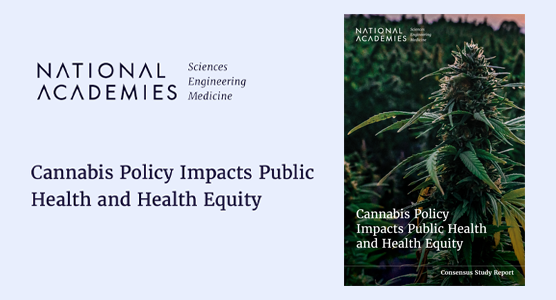Over the past several decades, more than half of all U.S. states have legalized cannabis for adult and/or medical use, but it remains illegal at the federal level. The public health consequences of cannabis policy changes have not been comprehensively evaluated. In response, the Centers for Disease Control and Prevention and the National Institutes of Health tasked the National Academies of Sciences, Engineering, and Medicine with reviewing cannabis and cannabinoid availability in the U.S., assessing regulatory frameworks for the industry with an emphasis on equity, and describing strengths and weaknesses of surveillance systems for cannabis.
The resulting report, Cannabis Policy Impacts Public Health and Health Equity, finds that there has been limited federal guidance to states regarding protecting public health, which has led to inconsistent protection across the states. The report recommends a strategy to minimize public health harms through stronger federal leadership, a robust research agenda, and more.
Access the report and supporting materials including policy briefs, action guides, and an infographic on the project webpage.
Highlights
This document outlines key findings and recommendations from the report.
Infographic
The study committee identified state cannabis policies most likely to impact public health and examined how states have approached each of these regulatory options, as outlined in this infographic.
—
ADDITIONAL NATIONAL ACADEMIES RESOURCES:

